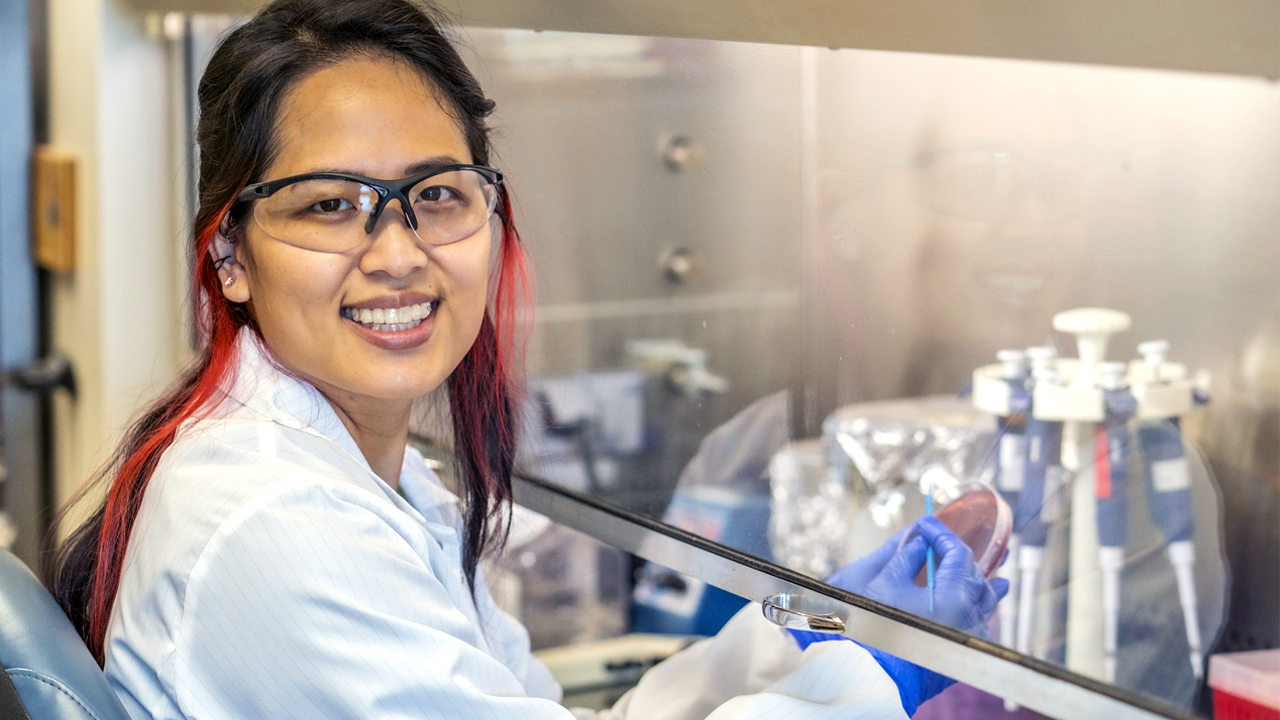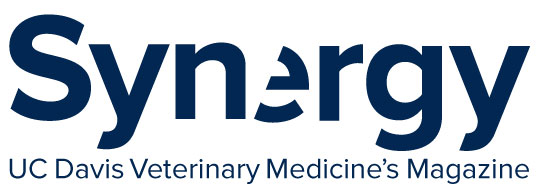
Curiosity Inspires Next Generation of Research Scientists

Alana Nguyen
Ph.D. candidate in
Dr. Stephen McSorley’s lab
Undergraduate degree: Biological Sciences with a concentration in microbiology at San Jose State University in 2015. Master’s degree: Biological Sciences while completing the California Institute for Regenerative Medicine Stem Cell program as a joint venture between San Jose State University and Stanford University in 2018.
Have you always been interested in science?
My fascination with science dates back to my childhood, when frequent bouts of illness prompted me to inquire, “What’s happening to me?” From then on, I’ve always wanted to understand why people get sick, why illnesses are different, and why the manifestations vary from mild to severe, even within the same ailment.
Was there anything or anyone in your childhood that encouraged or sparked your drive for science?
In middle school I had a science teacher who was always excited to teach. He consistently emphasized the endless array of questions we could pose, highlighting the fact that even as we sought answers, new inquiries would invariably emerge. His perspective significantly bolstered my curiosity for science, as it is an interlocking web of unknowns.
What is your area of focus?
I am pursuing a Ph.D. in Integrative Pathobiology with an emphasis in immunology. I use a mouse model to study how systemic immune responses, in the form of tissue resident memory T cells, can be protective against mucosal salmonella infection, and whether these cells can utilize a non-cognate stimulation to aid in the quicker response during secondary exposure.
What keeps you motivated?
A lot of elders both in and around my community struggle to comprehend the complexities of anything remotely related to science, and whenever illnesses occur, it is brushed off. This was especially pronounced during the COVID pandemic. These experiences continue to fuel my determination to serve as a link between the public and the scientific community. As I learn more, I can dispense accurate information and they have the autonomy to make their own decisions.
It’s crucial to maintain your curiosity, regardless of your area of research. In the vast landscape of science, there are still countless fragments awaiting discovery.
Alana Nguyen
What are your future career plans?
I will be pursuing a career focused on the translational application of scientific findings and discoveries from basic research to practical solutions that directly benefit human health. I wish to serve as a vital bridge between laboratory research and its real-world applications in clinical settings or the broader community, especially as a co-PI where I can also partake in mentoring students.
What advice do you have for younger students interested in foundational research?
It’s crucial to maintain your curiosity, regardless of your area of research. In the vast landscape of science, there are still countless fragments awaiting discovery. As our curiosity strikes, we may uncover previously unknown information, contributing a vital piece to the puzzle and facilitating connections between various aspects of scientific knowledge—this is all waiting for you.
What is your biggest challenge in conducting basic research?
One of the major hurdles in research is avoiding the temptation to equate our self-worth with unsuccessful experiments and recognizing when to reach out for help. It’s essential to acknowledge that setbacks are a natural part of the process and are not indicative of personal inadequacy. Instead, we should focus on enhancing our preparedness, seek additional support, and try again.

Felipe Rodriguez
Ph.D. candidate in
Dr. Jeroen Saeij’s lab
Undergraduate degree: B.S. 2019 from UC Merced in Biology with an emphasis on microbiology and immunology.
Have you always been interested in science?
When I was young, I scraped my knee and it got infected so I had to go to the doctor. The doctor explained that pus was evidence of White Blood Cells— these crazy immune cells that fight disease or “the bad guys.” They were cleaning up the bacteria that was in the wound. That’s when I became interested in learning more about immunology. Before that, I was always playing with my little green Army men and had been interested in joining the service. I thought, that’s pretty cool, having these little fighters inside our bodies. So, I started learning more about what each cell does. From that point on, I thought of immunology as each person having their own army.
Was there anything or anyone in your childhood that encouraged or sparked your drive for science?
A teacher brought a video of Bill Nye, the Science Guy, to class one day. He helped break down science for me in terms I could understand. That helped spark my interest in following a science career. After watching that, I looked up more of his videos and books to learn everything I could.

That's pretty cool, having these little fighters inside our bodies. From that point on, I thought of immunology as each person having their own army.
Felipe Rodriguez
What is your area of focus?
I’m focused on immunology, specifically as it pertains to infectious diseases. Currently I’m working with human peripheral blood mononuclear cells and how they respond to the parasite Toxoplasma gondii. I’m trying to show how they kill the parasite.
What keeps you motivated?
My motivation stems from how my work will advance science. If I complete and publish my current research, other scientists will have that to build upon and make their own hypotheses to further advance the field. Being a part of that drives me to push forward. The more publications you have, the more others can benefit from it and generate more data... perhaps for decades to come.
What are your future career plans?
I want to join the industry and I’m currently applying to internships. I’d like to be involved in developing new therapeutics for infectious diseases or cancer.
What advice do you have for younger students interested in foundational research?
For high schoolers or younger students, attend science fairs and visit college campuses to find out more specifics on majors that are appealing to them. For undergrads, if you’re interested in science and trying it out, pursue a summer internship or look into labs who need a research assistant. Dip your toes into research and find out if you like it. As a UC LEADS (Leadership Excellence through Advanced Degrees) scholar at UC Merced, I was able to do a year of research in a lab at my home campus and a summer project at UCSF. Those two years of guidance and scientific research helped prepare me for graduate school.
What is your biggest challenge in conducting basic research?
Persistence. One of the biggest challenges is not to get down on yourself if an experiment fails. Figuring out how to fix it or what went wrong can be frustrating and take weeks. But you have to keep working on it and use your problem-solving skills. You have to be willing to accept failure and learn from it.
